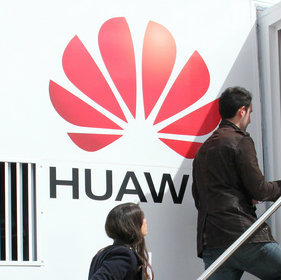Chinese vendor is backing away from the cable network business amid pressures from the US-China trade war and the loss of critical business with cable operators in portions of Europe, industry sources said.

Huawei is backing away from cable technology and the cable network product business due in large part to pressures resulting from the ongoing US-China trade war, multiple industry sources familiar with the situation said.
Two sources said Huawei's decision has been amplified by the loss of critical cable business in parts of Europe, including Denmark and Spain.
Huawei, which has also been battling views by the US and some countries in Europe that it is a threat to national security, has not responded to multiple requests for comment on whether this is an outright exit or a temporary pause in its cable tech and product business. However, three industry sources characterized the move as an "exit" that was relayed to customers in recent weeks.
One source said Huawei is telling customers that they still have cable network gear in stock, but that some of the vendor's MSO partners are "scrambling" for replacements. TDC, one of Huawei's key cable MSO customers in Denmark, is already looking at alternatives, the person said, but stressed that it's not clear if TDC is looking to swap in equipment from other suppliers or to simply stop deploying Huawei on a going-forward basis. TDC was asked for a status update on its cable product relationship with Huawei, and Light Reading will refresh the story if a response is forthcoming.
Huawei's move is also expected to affect the cable network equipment buying decisions of other MSOs, including Vodafone, DNA and Millicom, an operator focused on emerging markets in Latin America and Africa.
Huawei's cable product line-up includes both centralized and distributed forms of the cable modem termination systems (CMTS) and converged cable access platform (CCAP) as well as DOCSIS cable modems. Huawei has also explored the development of a virtual CCAP in tandem with a distributed access architecture that moves key processing capabilities into the node and toward the edges of the network.
Huawei initially focused on a low-density product using a "C-DOCSIS" platform originally developed by Broadcom for multiple dwelling units in China, and later adopted by suppliers such as SumaVision and ZTE, besides Huawei. C-DOCSIS, which allowed regular DOCSIS cable modems to talk to a stripped-down version of a CMTS called the Coax Media Converter (CMC), was integrated with DOCSIS initiatives at CableLabs and tied into the organization's official specifications about six years ago. Huawei later upgraded its C-DOCSIS platform to support the full DOCSIS 3.1 specs so it could target the European market, and had some success early on, said Jeff Heynen, research director of broadband access and home networking at Dell'Oro.
When asked for comment about Huawei's apparent decision to pause or exit the cable tech business, Heynen said the US-China trade war likely has made it tough for Huawei to access silicon from Broadcom, a top chipmaker for CCAPs, CMTSs and cable modems. He said Huawei has also been getting squeezed in Europe as other cable tech vendors entered the fray with their own distributed access products.
Huawei was aggressive to score cable business with operators in Denmark and Spain, but serving the MSO sector and hybrid fiber/coax networks has become a smaller priority as the company's wireline network focus has shifted a lot more heavily to fiber, he added.
A troubling trend
Still, Huawei's apparent pivot away from cable could be viewed as a troubling trend at the macro level due to the general slowdown of cable operator network spending as debates continue about which technologies will be used for next-generation HFC networks.
Cisco Systems, a key, long-time cable industry vendor, recently decided to suspend investment in Full Duplex DOCSIS (FDX), a technology intended to form part of a new DOCSIS 4.0 spec, until it has more clarity and certainty on what cable operators will need and buy.
Cisco has not announced a lot of detail about its future commitment to the cable industry, but its decision on FDX and other changes at that unit were jarring to other suppliers and operators and have become a significant concern for Cisco's current crop of cable operator customers.
Related posts:
— Jeff Baumgartner, Senior Editor, Light Reading
About the Author(s)
You May Also Like











